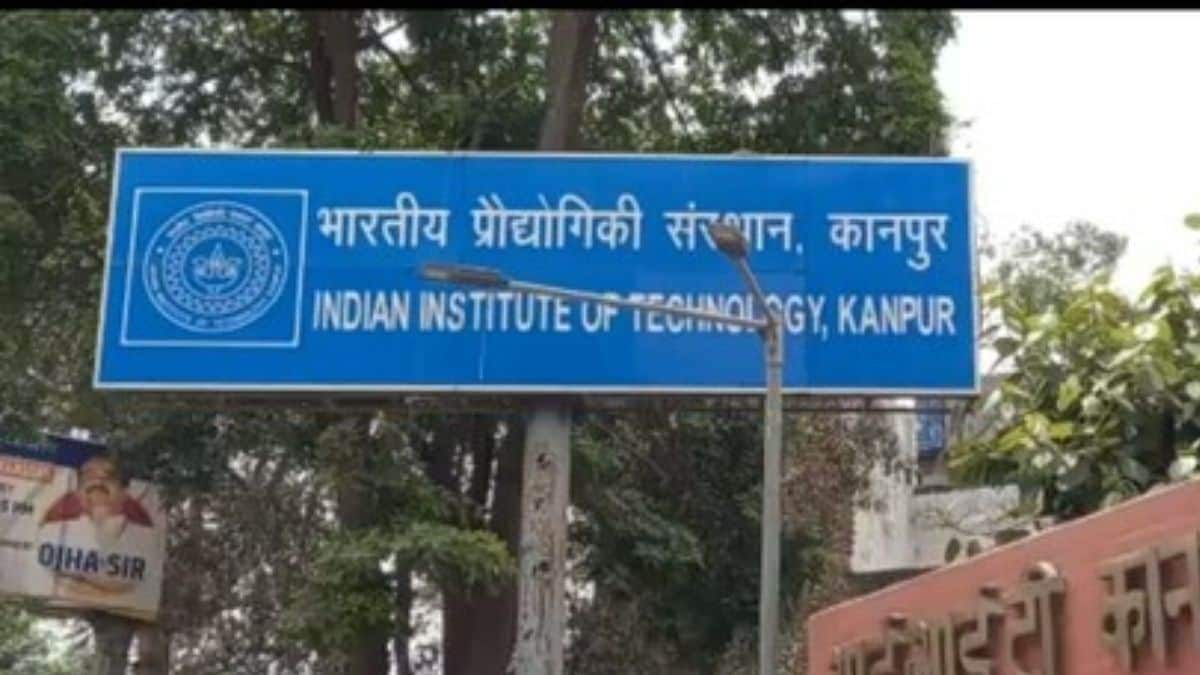The Indian Institute of Technology (IIT)- Kanpur has come up with a ‘no termination based on first semester performance’ policy to help postgraduate (PG) students cut down on stress. The policy is to be implemented from July when the session begins and is one of the major academic reforms to come into force post a recent spate of student suicides on campus.
One of the first generation IITs, the institute saw three such incidents on campus between December 19, 2023 and January 18 this year, which included two research scholars and an MTech student allegedly dying of suicide. In one of the cases, the incident occurred shortly after the student was issued a termination notice by the institute while he could not make an appeal against it in time.
According to Professor Shalabh, dean of academic affairs, IIT-Kanpur, the ‘no-termination policy in first semester’ will be implemented from July this year. “The institute has decided that no student will be terminated based on their academic performance (cumulative point index (CPI)) in the first semester and that they will be given another chance to qualify. This will allow students time to improve on their CPI without getting stressed about it,” he said.
However, if a student performs below the mark even in the second semester, then there will be termination as per rules, he added. But, even upon termination, students have a chance to make an appeal to their faculty against the decision, and if considered appropriate, the termination is then revoked.
Protests Led to The Policy
The third suicide this January had sparked protests on campus with students demanding a slew of academic reforms including transparency in grading, evaluation twice per semester and, setting up an ombudsman panel with faculty, an external member as well as student representatives, among others.
Following the protests, an Open House with students was held by the institute where the demands were put forward formally with the latter agreeing in-principle to some of these and panels were constituted to work on the same. For these to turn into implementable reforms, a decision on each policy has to be taken by the institute’s Senate, which is the highest academic decision-making body of an IIT.
“A number of academic reforms are being worked upon, which will be introduced once the Senate approves of it,” said a senior faculty member.
An internal survey of PG students carried out by a student body on campus last year stated that at least 80% of those pursuing research programmes faced mental health issues while 60% had at least once thought of dropping out in the entire duration of the programme.
What Students Say on The Policy
Student representatives from various welfare bodies on campus said that while several reforms were agreed upon by the institute’s administration, these are yet to be implemented.
“Regarding the no-termination policy, students who were already past their first semester earlier this year were also taken care of. The administration had written to different departments to repeal the termination of any students, who were under warning. The new students will get benefit of this policy from July,” said a PG student on the condition of anonymity.
For any student, the PG student added, if they are terminated right after the first semester, it shatters not just their own but their family’s dreams as well. “It becomes a depressing state for many who being associated with an IIT have always had the habit of excelling in life from school and suddenly they are out because they couldn’t work out a course in a semester. There are times when both students and mentors having taken a new project get stuck and are not able to come to the findings of research, but it’s the student who finally has to face the termination,” the student said.
For PG students, the admissions are done in July while the result of the first semester exams is out in December.
Reforms in the Works
According to student representatives, many fundamental changes are being worked out to help improve students’ mental health while some of these are in the advanced stages. “For bringing greater transparency in the grading system for research scholars, it is being planned that at the end of each semester, students will write a short report or a summary documenting their work and the mentors while grading will have to write their comments on why they decided on a particular grade to a student,” said a research scholar.
Currently, for research programmes, the practice is that the guide will just give an ‘S’ (satisfactory) or ‘X’ (non-satisfactory) grade depending on the student’s performance.
Another reform being worked upon for PhD students is an internal review with the formation of a ‘monitoring panel’ for each research scholar. The panel will have faculty members, who are experts in the field, but not from the same department. “PhD students will be required to make a presentation of their work to the panel in a specific duration every six months or a year on which they will get feedback from the panel. This is the practice in many American as well as some European universities, where the funding for a research project is reviewed every semester,” said another research scholar.
In India, PhD students get a fixed stipend for the entire five years’ duration of the course.

